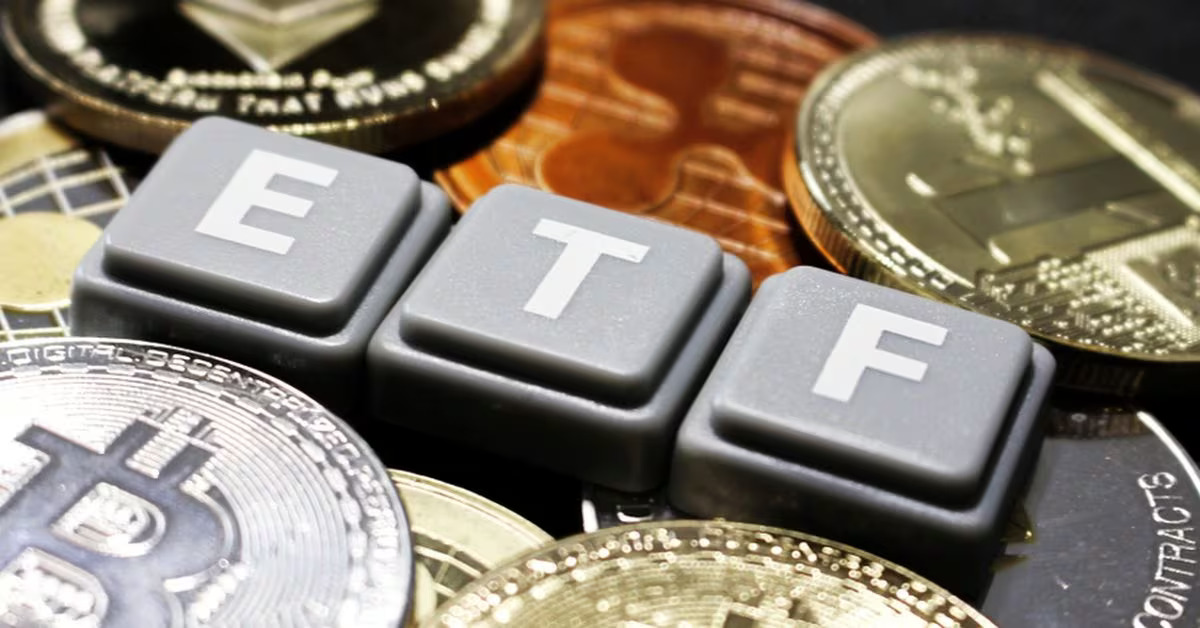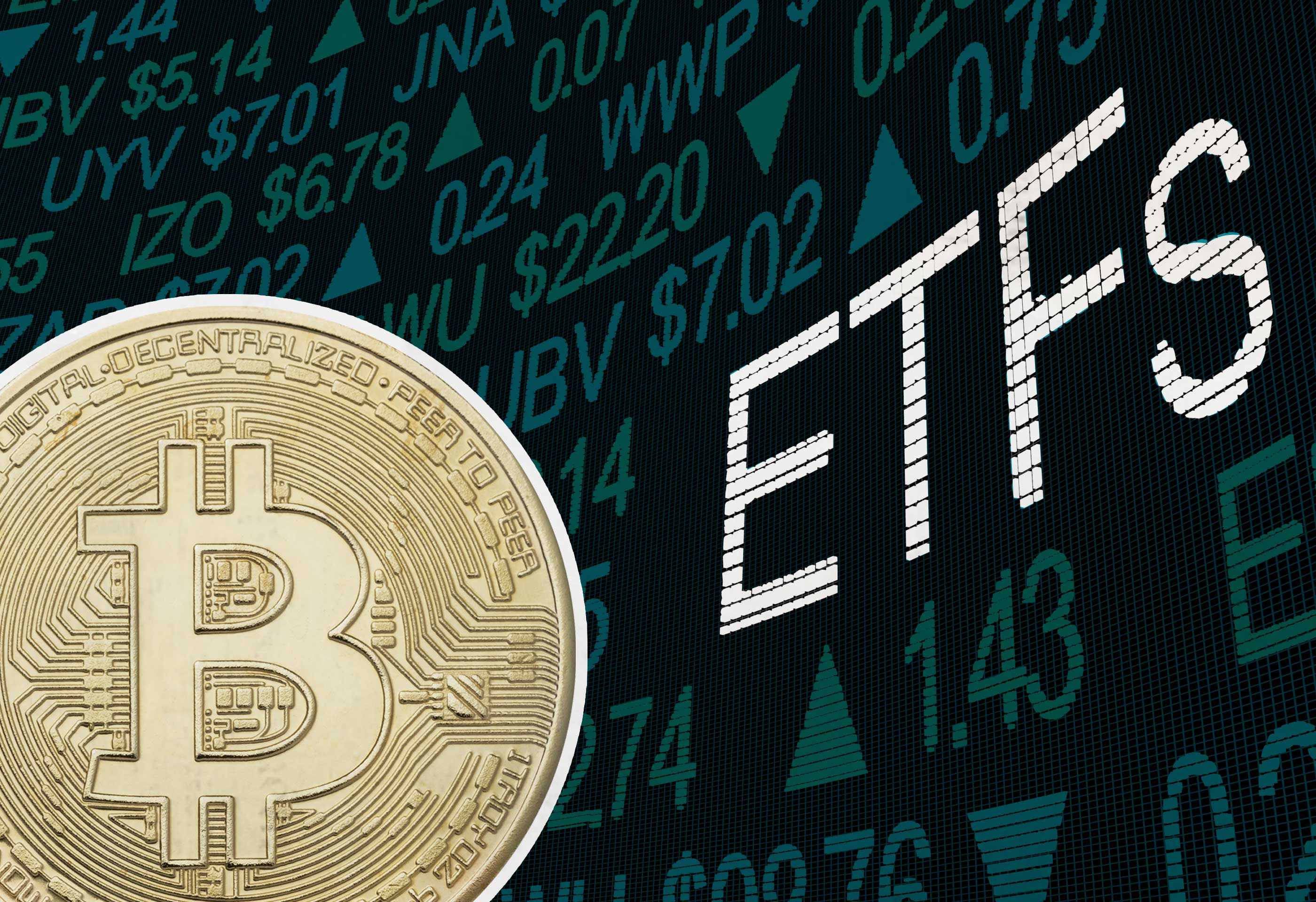Pros And Cons Of Bitcoin ETFs - Prospective Investors Beware
Explore the pros and cons Bitcoin ETFs: pros include accessibility, liquidity; cons involve volatility, counterparty risk. Make informed decisions!
Author:James PierceReviewer:Camilo WoodFeb 13, 2024544 Shares25.9K Views

Bitcoin Exchange-Traded Funds (ETFs) have been a topic of significant discussion and interest within the financial landscape. As a relatively new investment vehicle, Bitcoin ETFs offer investors exposure to the world of cryptocurrencies through traditional financial markets. In this exploration, we will delve into the pros and cons Bitcoin ETFs, considering the opportunities they present and the challenges they may pose for investors.
Let's discuss pros and cons Bitcoin ETFs in detail:
Pros Of Bitcoin ETFs
Accessibility And Convenience
Bitcoin ETFs provide a convenient way for investors to gain exposure to the cryptocurrency market without the complexities of purchasing and securely storing physical bitcoins. They offer accessibility through traditional brokerage accounts.
Market Liquidity
ETFs typically trade on major exchanges, providing liquidity that can be lacking in some cryptocurrency markets. This liquidity allows investors to buy and sell Bitcoin ETF shares throughout the trading day at market prices.
Simplicity
Purchasing shares in an ETF is typically far easier for investors than purchasing and retaining cryptocurrency outright. To directly invest in cryptocurrencies, you must first establish a wallet, choose a trading platform, link it to your bank account, and utilize the platform to purchase and sell cryptocurrency. Most of this can be avoided by trading shares in cryptocurrency ETFs directly from your current brokerage account, often in a matter of seconds.
Regulatory Oversight And Investor Protection
Bitcoin ETFs operate within the framework of traditional financial regulations, offering a level of investor protection. Regulatory oversight can help mitigate fraudulent activities, enhance transparency, and establish a more secure investment environment.
Institutional Participation
The availability of Bitcoin ETFs opens the door for institutional investors who may have been hesitant to directly engage with cryptocurrencies. This influx of institutional capital could contribute to increased market stability and legitimacy.
Tax Efficiency
Investors in Bitcoin ETFs may benefit from tax efficiency compared to holding and trading physical bitcoins. ETF structures can allow for certain tax advantages, such as avoiding direct capital gains taxes when selling shares.
Diversification Opportunities
Bitcoin ETFs can be included as part of a diversified investment portfolio, offering exposure to the potential growth of the cryptocurrency market alongside traditional assets. This diversification may help manage overall portfolio risk.
Cons Of Bitcoin ETFs
Market Volatility
While ETFs may provide liquidity, they do not shield investors from the inherent volatility of the underlying asset. Bitcoin's price fluctuations can still impact the value of the ETF, potentially leading to significant short-term losses.
Market Hours Restriction
Bitcoin ETFs are only available during the stock market's regular business hours, in contrast to the cryptocurrency market, which is open around-the-clock. Because of this restriction, there may be opportunities lost because of Bitcoin's constant price swings.
Counterparty Risk
Bitcoin ETFs involve the use of third-party entities, such as fund managers and custodians. This introduces counterparty risk, as investors are reliant on these entities to manage the fund responsibly. Failures or malpractices by these parties can pose risks to investors.
High Management Fees
Many Bitcoin ETFs come with management fees that can erode returns over time. Investors need to carefully assess these fees, as they can significantly impact the overall profitability of the investment, especially in a market with heightened competition.
Market Premiums And Discounts
The market price of Bitcoin ETF shares may not always perfectly align with the net asset value (NAV) of the underlying bitcoins. This can result in premiums or discounts, making the ETF's market price deviate from the actual value of the bitcoins it holds.
Limited Control Of Private Keys
Investors in Bitcoin ETFs do not have direct ownership of the underlying bitcoins. The custodian holds the private keys, limiting investors' control over their assets. This contrasts with holding physical bitcoins in a personal wallet.
Restricted Trading Options
Because Bitcoin ETFs are limited in their ability to trade and adjust to market trends, they can only follow the price of Bitcoin and cannot be exchanged for other cryptocurrencies.
Dependency On Exchange-Traded Market
The performance of Bitcoin ETFs is dependent on the functioning and efficiency of the exchange-traded market. Technical issues, trading halts, or disruptions in the exchange can impact investors' ability to buy or sell shares at desired prices.
Considerations For Investors
Risk Tolerance
Investors must assess their risk tolerance before venturing into Bitcoin ETFs. The cryptocurrency market is known for its volatility, and ETFs may not eliminate this risk entirely.
Understanding Fees And Expenses
Scrutinizing the fees associated with a Bitcoin ETF is crucial. High management fees can significantly eat into potential returns, making it important to compare fee structures across different ETF options.
Long-Term Vs. Short-Term Goals
Investors should align their investment in Bitcoin ETFs with their financial goals. Whether seeking short-term gains or incorporating Bitcoin as a long-term investment, the choice of ETF and its associated strategy should match the investor's objectives.
Due Diligence On Fund Management
Researching the fund manager, custodian, and other third-party entities involved in the Bitcoin ETF is essential. Understanding their track record, reputation, and security measures helps investors gauge the level of trust and confidence in the management of the fund.
Staying Informed On Regulatory Developments
The regulatory environment for Bitcoin ETFs is subject to change. Investors should stay informed about regulatory developments, as shifts in the regulatory landscape can impact the structure and operations of these funds.
Pros And Cons Bitcoin ETFs - FAQs
Is A Bitcoin ETF A Good Idea?
They are, very rightly, dubbed the most significant new product that Wall Street has produced in almost thirty years. This is because buying and selling Bitcoin is so easy with these ETFs that almost anyone can do it. Thus, the new Bitcoin ETFs have the potential to permanently alter the cryptocurrency investing landscape.
What Are The Advantages Of Investing In Bitcoin ETFs?
Bitcoin ETFs provide accessibility, market liquidity, regulatory oversight, institutional participation, tax efficiency, and diversification opportunities.
What Is The Disadvantage Of Bitcoin ETF?
One of the biggest drawbacks of Bitcoin ETFs is that they expose investors to the high price volatility found in cryptocurrency markets. Within a little period of time, there can be significant price swings for Bitcoin and its ETFs.
How Do Bitcoin ETFs Impact An Investor's Exposure To Market Volatility?
While Bitcoin ETFs offer liquidity, they don't shield investors from Bitcoin's inherent volatility, and market fluctuations can impact the ETF's value.
What Is Counterparty Risk In The Context Of Bitcoin ETFs?
Counterparty risk involves the reliance on third-party entities like fund managers and custodians; their failures or malpractices can pose risks to investors.
Are There Alternatives To Bitcoin ETFs For Gaining Exposure To Cryptocurrencies?
Yes, alternatives include directly purchasing and storing physical bitcoins, investing in cryptocurrency funds, or using cryptocurrency exchanges.
How Can Investors Stay Informed About Regulatory Developments Impacting Bitcoin ETFs?
Investors can stay informed by following reputable financial news sources, monitoring regulatory announcements, and staying updated on any changes in the regulatory environment for Bitcoin ETFs.
Why Not Invest In Bitcoin ETF?
Purchasing a crypto ETF does not entail direct ownership of the cryptocurrency. If the fund is a crypto futures ETF, it will not even hold the currency directly.
Conclusion
Bitcoin ETFs represent a bridge between the traditional financial markets and the dynamic world of cryptocurrencies. While offering increased accessibility, liquidity, and regulatory oversight, they also bring forth challenges such as market volatility, counterparty risk, and management fees.
Investors must carefully weigh the pros and cons Bitcoin ETFs, considering their risk tolerance, financial goals, and the evolving cryptocurrency landscape. As the market matures, Bitcoin ETFs will likely continue to evolve, offering investors new opportunities and considerations in the ever-changing investment landscape.

James Pierce
Author

Camilo Wood
Reviewer
Latest Articles
Popular Articles

